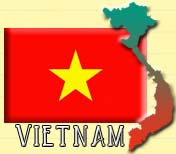Hotel project in socialist-era Hanoi park draws protests
 Hanoi - With public controversy building over the construction of a luxury hotel inside a popular Hanoi park, the European chain slated to manage the hotel said Tuesday that all of the project's legal permits were in order.
Hanoi - With public controversy building over the construction of a luxury hotel inside a popular Hanoi park, the European chain slated to manage the hotel said Tuesday that all of the project's legal permits were in order.
Construction of a Novotel hotel inside the territory of Hanoi's Thong Nhat (Reunification) Park began in June 2008. In early February letters of protest to city officials from architects and community organizations prompted a wave of press coverage critical of the project.
The objections were serious enough to lead Prime Minister Nguyen Tan Dung to ask Vietnam's Ministry of Construction for a review of the project, which is due Thursday.
Accor, the parent company of Novotel, said Tuesday that it would wait for the results of the review before reacting to the protests.
"We are confident that all of the investment permits and land use rights are in place," said Evan Lewis, an Accor spokesman based in Singapore. "The project is proceeding as prescribed."
Vietnamese media began running articles critical of the project on February 10, after landscape architect Tran Thi Thanh Van wrote a letter of protest to the head of Hanoi's People's Committee, the city's governing body. Van's letter argued that the transfer of park land to private use was illegal, and that the reduction in Hanoi's scant green space ran counter to the city's master plan.
At a press conference February 13 to respond to the complaints, the People's Committee head, Nguyen The Thao, said he believed that if the hotel were canceled, the project's foreign investors would be entitled to sue the city. The backers are reported to have spent 15 million dollars in construction costs so far.
Lewis noted that the area of the park dedicated to the hotel had been fenced off for years, and that the initial proposals to build a hotel had been floated as far back as
1991.
In an interview with Deutsche Presse-Agentur dpa, Van said objections to the project had been delayed by lack of transparency. She said it had taken her months of research to discover what company was behind the project and which city officials had approved it.
Hanoi officials initially listed the investors as an unknown Singapore holding company called SIH, but Vietnamese press have reported the backers are the Vietnamese investment and real estate corporation VinaCapital.
VinaCapital executives did not respond to requests for comment.
Public protests against government policy are rare in Vietnam, but the status of Thong Nhat Park, the largest in central Hanoi, is historically sensitive. An earlier round of protests in 2007 defeated a proposal by another real estate developer to build a large amusement park in the park.
The park was built from 1958-61 by tens of thousands of student laborers as a socialist beautification project. Thousands of residents use it for Tai Chi exercise and badminton.
Vietnamese and some foreign citizens involved in health and urban planning issues in Vietnam have launched a campaign to boycott Accor facilities if the company does not halt the project.
One boycott supporter, Nguyen Kieu Diem, an official at Vietnam's Ministry of Culture and Tourism, wrote in a letter to Accor executives that she was "outraged" by the hotel project.
Architect Le Van Lam, who worked on the crews that built the park as a student, is also among the protestors.
"Imagine Thong Nhat Park is your house, and the land that Accor is building their hotel on is your family's property," Lam said. "When you wake up and see your property has been stolen, and you find the culprit, what will you do?" (dpa)